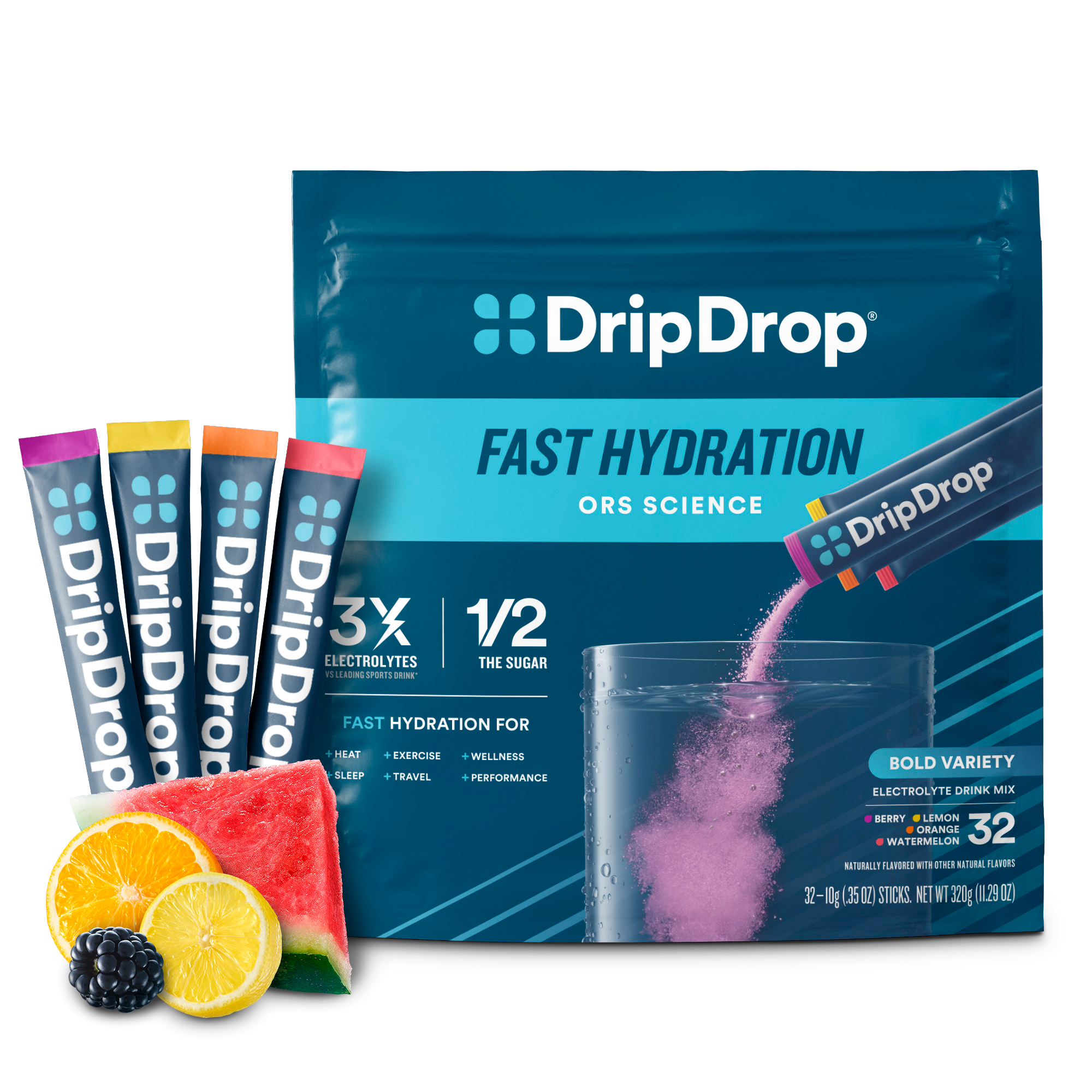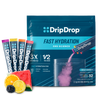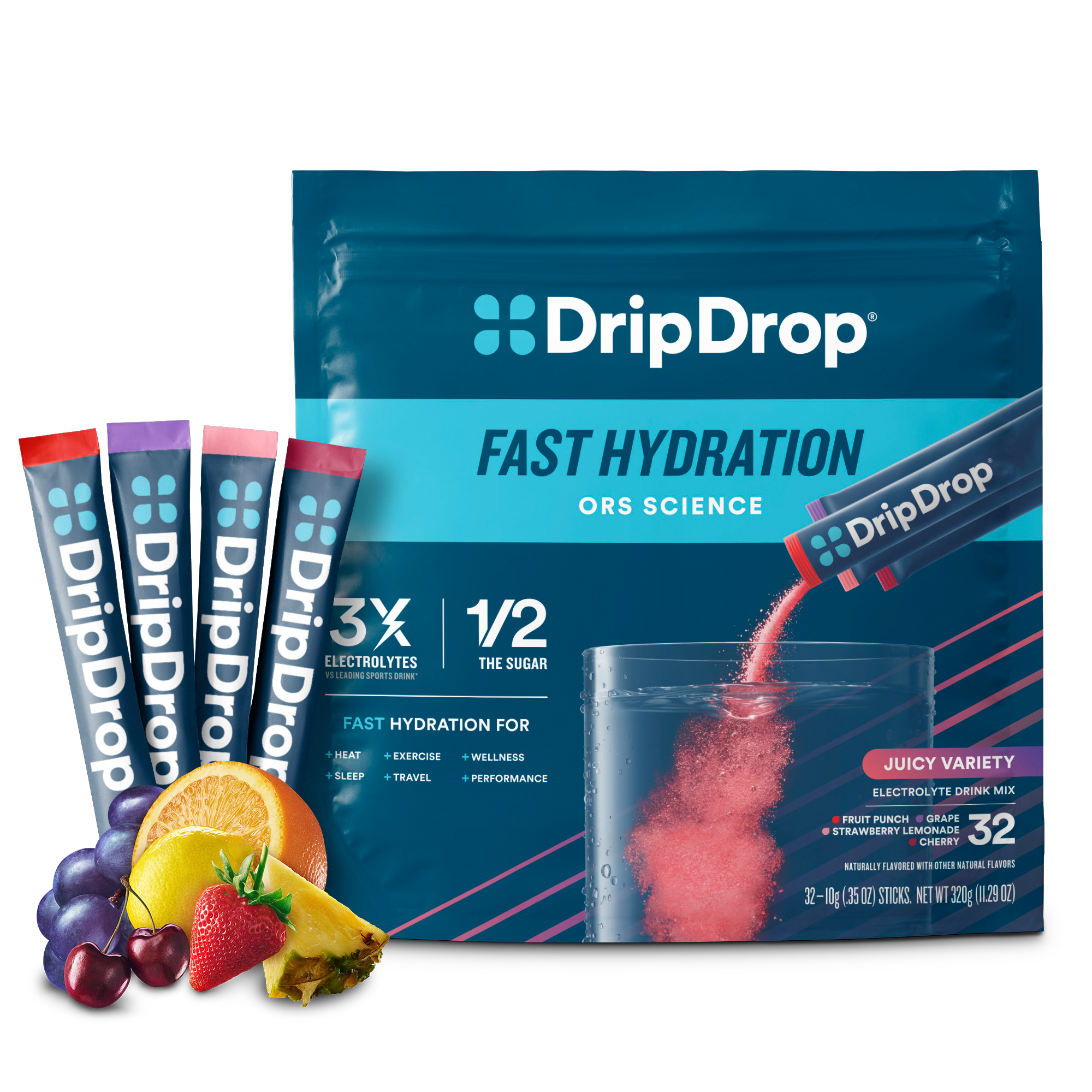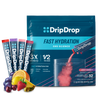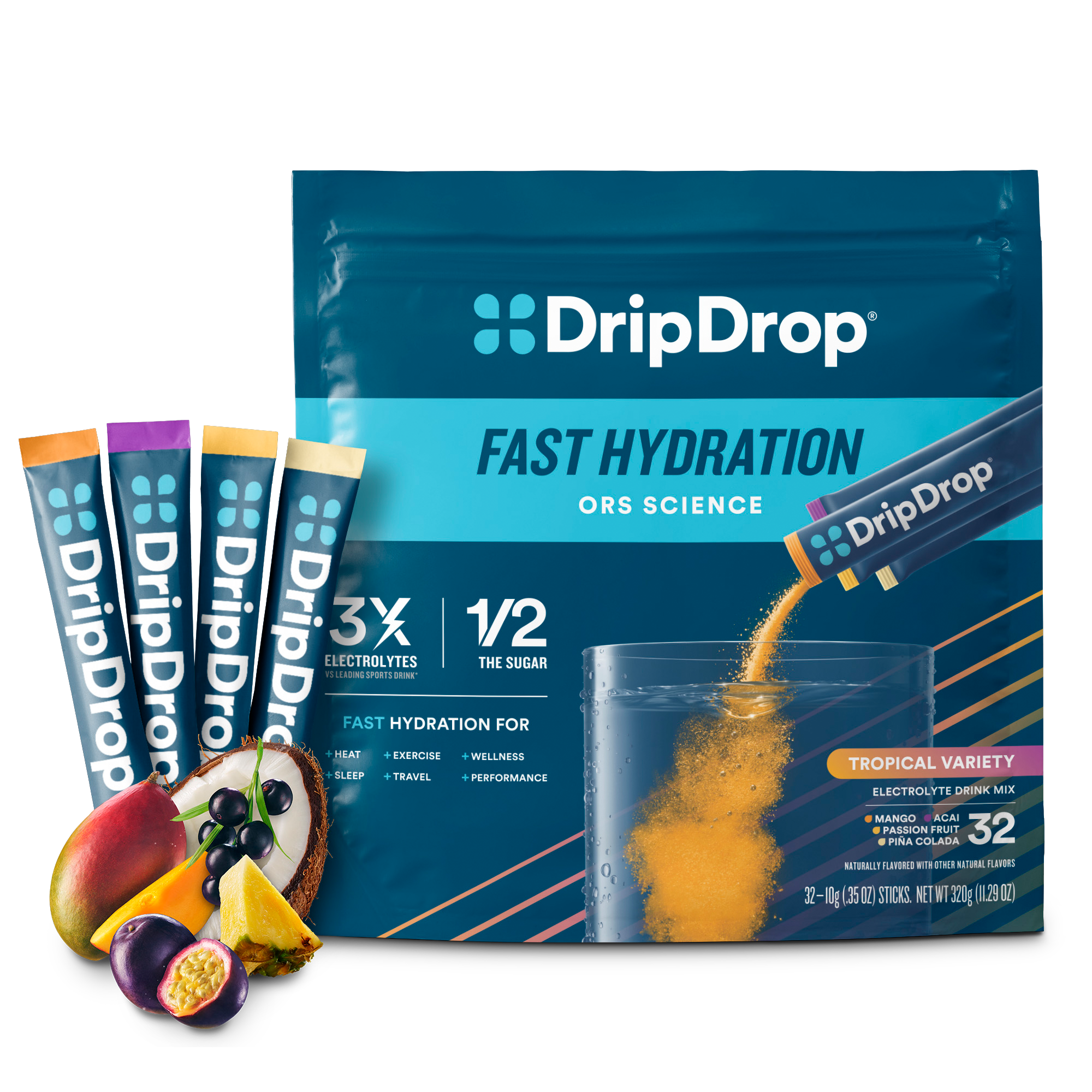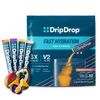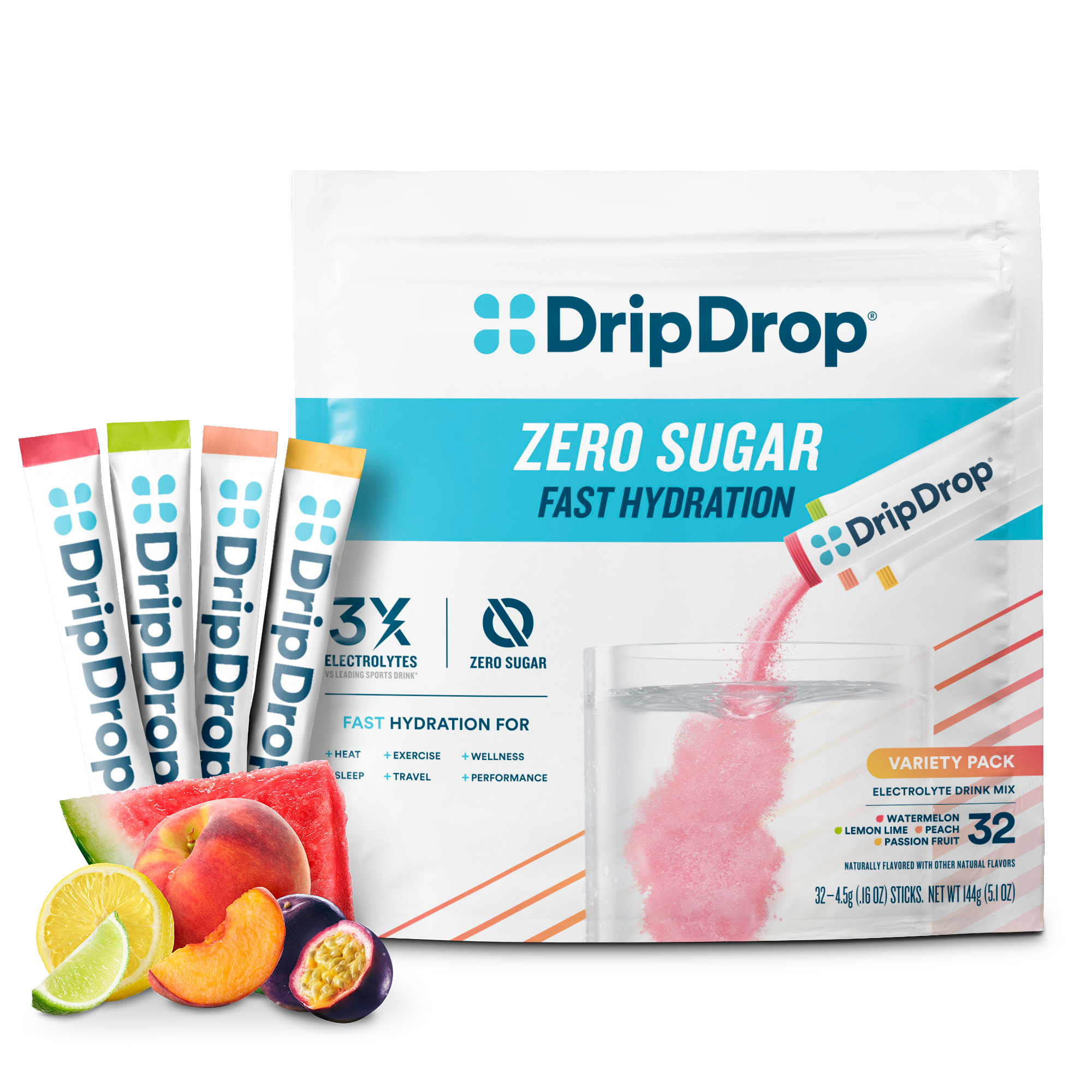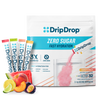Here, we’ll answer the question, “Is coffee a diuretic?” and show you why it matters. We’ll also highlight the connection between diuretics and dehydration.
Is Coffee a Diuretic?
Many people drink coffee for its energy-boosting properties. Others enjoy a cup of java thanks to purported health benefits, including improved mental and physical performance. When you drink a cup of coffee, caffeine — the main ingredient in coffee — moves from your stomach into your bloodstream and liver, where it’s used to create metabolic and biochemical changes that produce an increase in energy and other well-known effects of caffeine.
Caffeine consumption also affects your kidneys. This is why the answer to the question, “Is coffee a diuretic?” is yes. Recent studies show that caffeine causes diuresis — also known as increased urination. Your body produces urine to remove waste and maintain fluid levels. When you urinate more often by drinking large amounts of caffeine, your fluid and electrolyte levels may be thrown off balance.
So why does the question “Is coffee a diuretic” matter? Caffeinated beverages, including coffee, tea, energy drinks, and sodas, may accelerate dehydration by promoting fluid loss through urination. Dehydration is a condition where your fluid loss outpaces your fluid intake. The condition can be caused by a loss of fluids as well as electrolyte imbalances including sodium and potassium.
The signs of dehydration include headache, dizziness, low blood pressure, and irritability. Additional evidence of dehydration includes excessive thirst, skin turgor, and dry skin. In serious cases, you may feel confused, have seizures, or fall into a coma.
Recently, researchers conducted a review of studies including counterbalanced cross-over studies in a free-living population. This is a type of study where participants receive both an experimental treatment and the placebo during the study time frame. Researchers found that consuming 250 to 300 milligrams of caffeine — 2 to 3 cups of coffee — results in increased urination that may affect hydration status. While drinking a small amount of caffeine won’t lead to serious dehydration, excessive coffee consumption can increase the likelihood of mild to moderate dehydration and worsen its effects.
The Link Between Diuretics and Dehydration
Diuretics like caffeine can compound the effects of dehydration and increase the likelihood of developing the condition. Here’s why: Your body needs a precise balance of electrolytes including sodium, potassium, and magnesium to maintain hydration. When you consume diuretics such as caffeine and water pills, your kidneys respond by increasing urine output.
That means your body loses fluids and electrolytes like salt more rapidly than normal leading to a fluid volume deficit. The fluid in your cells is made of water and electrolytes that are essential for things like muscle movement and sending signals to your brain. If you don’t replenish lost fluids and electrolytes quickly, dehydration may set in.
Again, drinking small amounts of caffeine won’t cause serious dehydration. However, caffeine intake and its short-term mild diuretic effects may make the signs of dehydration worse. That’s why it’s vital to hydrate throughout the day.
Other Causes of Dehydration
While diuretics can accelerate dehydration, there are many other ways you may become dehydrated. These include daily activities such as sleep, strenuous physical activity, and getting sick. If you develop dehydration from one of these main causes, consuming alcoholic beverages or caffeinated beverages like coffee — thanks to its diuretic effects — can compound the effects of dehydration.
Here are the main causes of dehydration:
- Exercise and strenuous work: Your sweat is made of sodium and water that is pushed to the surface of your skin. There, it evaporates to create a cooling effect that helps to regulate your body temperature. If you sweat a lot while exercising or working outdoors in high temperatures, your risk of dehydration increases. If dehydration sets in, drinking caffeine may compound the effects of this dehydration.
- Illnesses: Dehydration is frequently caused by infections that cause vomiting or diarrhea. That’s because you lose electrolytes and fluids more rapidly than you can replenish them. Drinking caffeine can cause an upset stomach, further compounding fluid loss and increasing the risk of dehydration.
- Sleep: Mild dehydration occurs naturally when we sleep. That’s because moisture in our nose and mouth evaporates, especially if you have a sleep condition such as sleep apnea. If you sleep in a hot environment, you may also sweat while sleeping, increasing the loss of fluids and electrolytes and thus develop dehydration. So, starting the morning by drinking a cup of Joe may compound symptoms of dehydration due to increased urination that results in further loss of electrolytes and fluids.
How To Manage Coffee-Related Dehydration
Coffee drinkers don’t need to give up the beverage, but they may want to monitor or reduce their coffee intake. Studies show moderate daily coffee intake under 500 milligrams is unlikely to cause dehydration. If you regularly drink more caffeine than that, try swapping out a few cups of espresso with a lower-caffeine alternative like black tea. You can also try augmenting caffeine intake with DripDrop, which provides a quick, easy and delicious way to hydrate fast.
Caffeine-free alternatives such as decaffeinated coffee can also help you cut down on your caffeine content, but these options won’t help you manage dehydration. For that, you need a solution like DripDrop that can help you boost your electrolyte and water intake to fend off dehydration.
Manage Dehydration Without Forgoing the Java
So, is coffee a diuretic? Yes. However, while this may compound the effects of dehydration, you don’t have to forgo your favorite drink or switch to decaf coffee. You can probably drink at least some coffee and avoid dehydration by having a high-quality dehydration protocol in place.
For cases of mild to moderate dehydration, DripDrop is a fast, effective, and great tasting remedy. With convenient packaging that allows you to have DripDrop when you need it, where you need it. Get started with our most popular multi-flavor pouch for dehydration relief fast. Or, learn more about how you can save up to 25% on every purchase when you sign up now for a subscription.



